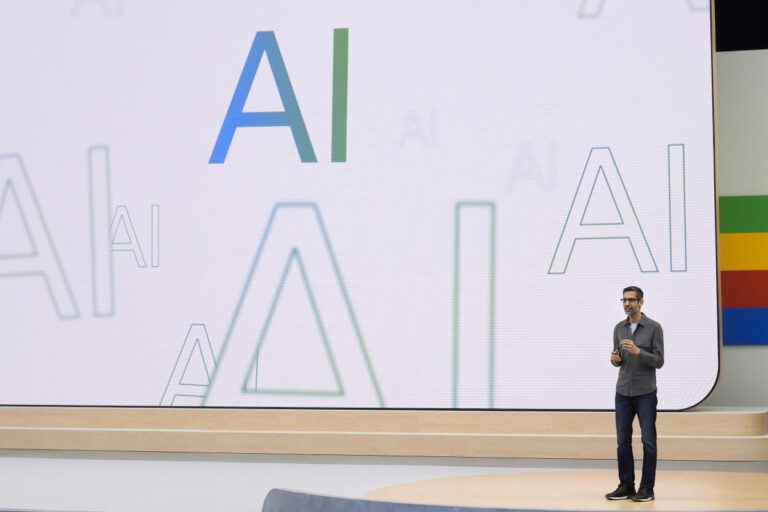Google (GOOG, GOOGLE) is giving its Google Shopping page an AI upgrade. The shopping site will now include AI-powered summaries, powered by the company’s Gemini AI model, that offer advice on how to purchase the best option for the product you’re looking for. It will also get new personalized results and personalized offer pages.
Google says AI summaries will appear in a new module at the top of the screen, just below the Sponsored Products list, and will provide information on the types of features to look for when purchasing products and Why.
Google shares were largely flat on the day.
If you’re buying a kettle to brew matcha tea, for example, the AI summaries box will tell you that you should look for kettles with a gooseneck spout for controlled pouring and precise temperature controls. Below, you’ll see a number of product recommendations that include information from these AI summaries.
In the tea kettle example, Google Shopping highlighted things like “gooseneck” and “temperature control” found in the recommended product descriptions, making it easier to understand why Google suggested these options.
In another example of someone searching for the best men’s winter jacket for the Pacific Northwest, the AI recommendation feature explains that coats that offer both warmth and water resistance are best for rainy weather in the region.
Google says users shop more than a billion times a day using Google, making this a huge opportunity for Google to prove its AI upgrades are worth it for everyday users.
In addition to AI recommendations, Google announced the addition of a personalized shopping feed to the Google Shopping homepage, based on products users have already expressed interest in. Google says that personalized recommendations can also be turned off through the Google Shopping settings menu.
The Offers page, on the other hand, will include personalized offers for products and merchandise.
In addition to Google Shopping, Google has added its Gemini models to its main Google Search product through its AI Overviews feature, as well as a number of its Android apps for smartphones. But it hasn’t been easy for the company. In May, Google faced considerable backlash and widespread mockery when users discovered that AI previews were telling them they could eat rocks and put glue on their pizzas.
Google responded by scaling back its rollout to fix the issues and ensure the feature doesn’t present unreliable information.
Google’s updates come as the company seeks to monetize its vast investments in generative AI technologies. In the second quarter, Google parent Alphabet said it spent $2.2 billion building AI models within its DeepMind and Google Research organizations. This is up from $1.1 billion in the second quarter of 2023.
Google isn’t the only company investing money in generative AI. Microsoft (MSFT) spent billions to partner with OpenAI, while Amazon (AMZN) invests heavily in Anthropic. Meta is also investing money in its AI programs, creating its own family of Llama AI models.
Big tech companies are racing to be the first to achieve artificial general intelligence, or artificial intelligence that can rival or outperform the average person. But it will take years and billions of dollars more before they get there – if they ever get there.
Email Daniel Howley at dhowley@yahoofinance.com. Follow him on Twitter at @DanielHowley.
Read the latest financial and business news from Yahoo Finance.

